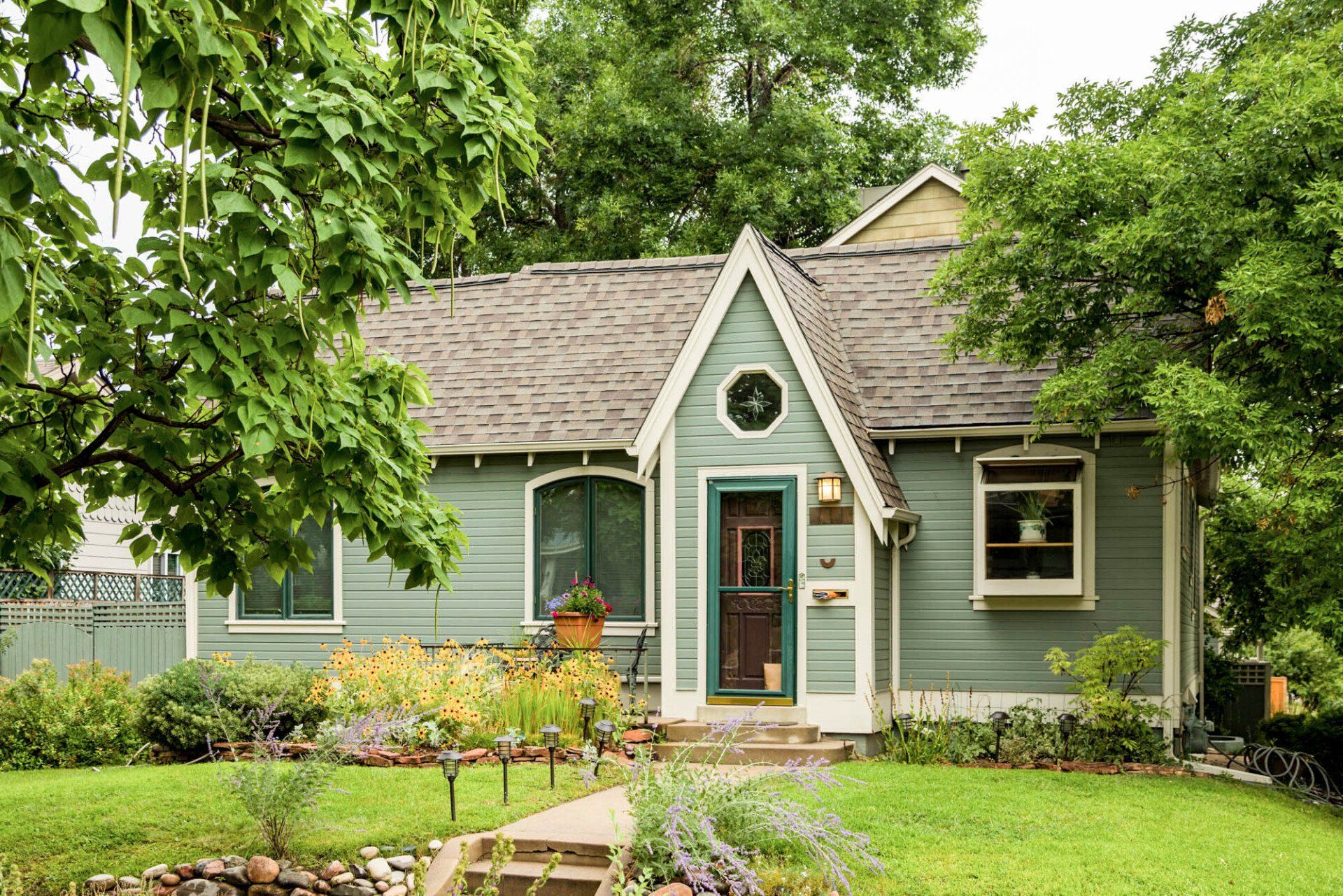Buying a House in 2021? It Can Be an Emotional Experience
This is a subtitle for your new post

A mental health expert offers tips on coping with the stress of buying a home in today’s intensely competitive market.
Buying a house is one of the biggest decisions of your life. Even in an ideal scenario — a buyers market with plenty of affordable houses to choose from and scant competition — it’s not something to take lightly. And today’s buyers are not living that ideal: Prices are rising quickly, inventory is at an all-time low, and competition for the few homes available often leads to bidding wars (fortunately, there are some effective ways to prepare for that) — all of which can create anxiety and stress.
While record-low mortgage rates make purchasing a home an enticing opportunity, and having your own place — maybe with a garden and a puppy (well-behaved, of course!) — may sound like a dream, many others are dreaming the same dream.
To top it off, the COVID-19 pandemic has brought plenty of its own emotional baggage and logistical challenges.
As Mark Stayton discovered, working in the real estate industry doesn’t provide any shortcuts. A public relations specialist at Zillow, Mark and his wife have been trying to buy a home in the red-hot Seattle market for just over a year now. Through countless tours and nine losing bids, they’ve ridden the emotional highs of falling in love with the “perfect” home, endured the turbulence of bidding wars and felt the crushing lows of being blown out by an all-cash buyer — occasionally all three with the same house!
To better understand how to prepare emotionally for what can be a marathon search, Mark spoke with Christina Koepp, a licensed mental health counselor at Wellspring Family Services, and asked her to weigh in on what home shoppers can do to cope with this pressure-cooker of stress. While not intended as medical advice, Christina offers some general tips to help prepare for the emotional journey of finding and buying a home.
What makes buying a home such a stressful experience?
Christina Koepp: There is almost no area of our lives that is left untouched by such a monumental decision. Considering where to live and buying a home taps into all parts of our mind: our basic need for shelter, our attachment needs for a safe place to connect with ourselves and others, and the existential question of how our lives will look in this new place and community. In order to take the risk and make an offer on a home, we need to be willing to attach to a new place to live, and — simultaneously — hold it loosely enough that it won’t be devastating to lose the bid. It’s a narrow path of guarded optimism.
How is the current health crisis adding to these stresses?
CK: We know that most people are more stressed and anxious right now at a baseline. There has been tremendous and continued disruption to many lives, making it more likely that people will crave consistency and predictability where they have the ability to create it.
Very little is predictable when it comes to buying a home — you can be outbid, you may have disagreements with your home-buying partner, etc. If you’re already more anxious, more stressed, or experiencing disrupted sleep or low mood as a result of the pandemic, then a big decision like this will be compounded by these existing challenges.
In this competitive market, buyers may lose out on one or more homes before their offer is selected. How can people mentally prepare for a competitive bidding process?
CK: There is a balancing act of being vulnerable enough to imagine your life in this potential new place, creating new memories and experiences within those walls and neighborhood — which takes risk — and balancing that with the very healthy protective impulse of avoiding attaching too fully and too quickly until it’s assured.
For folks who tend to avoid the vulnerability piece, it makes home-buying hard, because our emotional response to each home is, in fact, an important part of any decision-making process. On the other hand, if you “fall in love” with every home you see, there leaves little room for discerning which is the best fit, and you can quickly become emotionally fatigued with each lost bid or opportunity.
Here are some tips:
Identify your hopes, preferences and design dreams in general terms. As you consider each new home, ask yourself, “How will I feel if I don’t get this home?” If you find yourself feeling concerned over the loss, talk to someone (especially the person who you may be buying with) about how excited you are about the elements of the home. Notice if you’re veering into, “Only this home has this unique element!” Sticking with your general preferences — updated home, architecture style, neighborhood, etc. — can help remind you that there is more than one home where you can find joy and contentment.
Identify your non-negotiables as clearly as possible. The flip side to being as general as possible with your wants is being as clear as possible with your deal-breakers. Know before you look if you’re really only open to a condo with three or more bedrooms, or a house with a garage. It’s easy to be swept up in a home that may have some dream elements to it even though it has deal-breaker issues. If you find yourself in that position, offer yourself the grace that this won’t always be a tidy and neat process — you get to be human in the midst of it.
Do you have any strategies or tips buyers can use to move on from an unsuccessful offer?
CK: Pause to reflect, then let it go. It can be deeply disappointing to lose an opportunity that you felt invested in. Honor that by taking a few hours or even a couple days to acknowledge that experience, and know it will fade. Note what was so disappointing — did it appear to have everything you wanted? Finding an opportunity to feel gratitude will counter the propensity to dwell solely on what was lost. Also helpful is considering if it really did have everything you wanted, or — more likely — most of what you wanted.
Learn from each loss. In my experience, each bid process is unique and comes with its own challenges and insights. Again, note what you were surprised by and integrate it into your process for future bids.
What general advice would you give to someone in the midst of buying a home right now?
CK: Prepare for a marathon, even if it’s just a sprint. You will not know how long it will take to have an offer accepted. It could be a couple homes you offer on, it could be 12. Having our expectations be flexible and expansive sets us up for less disappointment.
Extend kindness to yourself. It may sound simple, but this is challenging for many. It can be easy to doubt your judgment, become angry with your home-buying partner, or get obsessed with searching. All these responses are understandable! (Remember earlier when we acknowledged how important this decision is?) Being kind means finding ways to rest, recharge and integrate each step along the way. This could be taking a short break from scrolling through listings to recenter yourself, preparing a comforting meal after a lost opportunity, or being intentional about getting to bed earlier, if you can.
Talk about it. For many people, it’s helpful to say out loud what’s rolling around in their mind. Some prefer to journal. Whatever works best for you, try to share the challenges, insights, dreams and goals that you’re noticing. Remember that you’re looking for a home during an extraordinary time, so be mindful of the extra effort that may involve. The more we’re aware of our rising tide of stress, the more likely we are to tap into our strategies to manage that stress. Reach out often to loved ones to keep your awareness, energy, and perspective in line with your goals and hopes.
Remember, these tips are intended as general advice. If you have specific concerns, are struggling or need help, contact a licensed mental health professional.
If you’re ready to take the next step in your home-buying journey, you can find information and reviews for local Zillow Premier Agents who can walk you through the buying process and help you find the right home. You can also learn more about financing options and get a better understanding of your total monthly expenses from the experts at Zillow Home Loans.
Share this post




